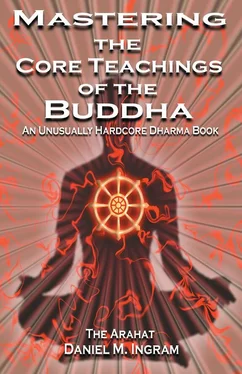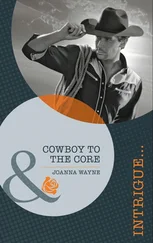Daniel Ingram - Mastering the Core Teachings of Buddha - An Unusually Hardcore Dharma Book
Здесь есть возможность читать онлайн «Daniel Ingram - Mastering the Core Teachings of Buddha - An Unusually Hardcore Dharma Book» весь текст электронной книги совершенно бесплатно (целиком полную версию без сокращений). В некоторых случаях можно слушать аудио, скачать через торрент в формате fb2 и присутствует краткое содержание. Год выпуска: 2009, ISBN: 2009, Издательство: Aeon Books, Жанр: Старинная литература, на русском языке. Описание произведения, (предисловие) а так же отзывы посетителей доступны на портале библиотеки ЛибКат.
- Название:Mastering the Core Teachings of Buddha - An Unusually Hardcore Dharma Book
- Автор:
- Издательство:Aeon Books
- Жанр:
- Год:2009
- ISBN:9781904658405
- Рейтинг книги:5 / 5. Голосов: 1
-
Избранное:Добавить в избранное
- Отзывы:
-
Ваша оценка:
- 100
- 1
- 2
- 3
- 4
- 5
Mastering the Core Teachings of Buddha - An Unusually Hardcore Dharma Book: краткое содержание, описание и аннотация
Предлагаем к чтению аннотацию, описание, краткое содержание или предисловие (зависит от того, что написал сам автор книги «Mastering the Core Teachings of Buddha - An Unusually Hardcore Dharma Book»). Если вы не нашли необходимую информацию о книге — напишите в комментариях, мы постараемся отыскать её.
Mastering the Core Teachings of Buddha - An Unusually Hardcore Dharma Book — читать онлайн бесплатно полную книгу (весь текст) целиком
Ниже представлен текст книги, разбитый по страницам. Система сохранения места последней прочитанной страницы, позволяет с удобством читать онлайн бесплатно книгу «Mastering the Core Teachings of Buddha - An Unusually Hardcore Dharma Book», без необходимости каждый раз заново искать на чём Вы остановились. Поставьте закладку, и сможете в любой момент перейти на страницу, на которой закончили чтение.
Интервал:
Закладка:
Thus, a major reason for secrecy or codes seems to be self-
preservation, though not in the sense of “ego” preservation. These are kind motives, but they also perpetuate the atmosphere of secrecy and confusion so present in the modern mystical world. The unfortunate truth is that talking about attainments tends to cause many more unhelpful reactions than helpful ones. It tends to isolate the person who has attained these things, cause people to think of them as way too wonderful or completely nuts (or both) and generally project all sorts of 341
More on the “Mushroom Factor”
naïve and unhelpful things onto them, such as a limited emotional range model or even worse a limited possible action model. This can create situations that foster the abuse of sex, money, drugs, and power that seem to plague gurus and other spiritual teachers with some regularity.
Freud would have had a field day with this.
As regards the bizarre and fantastic projections that are commonly associated with teachers, gurus, and all other potentially enlightened beings, they tend to arise because there is not enough widespread information on how misleading the limited emotional range models are and what preposterous junk the limited possible action models are, not to mention the lack of information on the absurdity of the wide range of other magical attributes that are imagined to arise from simply ceasing to identify with ordinary phenomena. I considered writing a whole chapter called “Adults in Fantasyland,” but hopefully the preceding sentence will do the trick.
This lack of information on the ordinariness of realized individuals creates a viscous cycle in which those who know don’t say, “I am enlightened and ordinary,” because if they do then they will be viewed in very strange ways despite what they say; and, because they don’t tell, no one but them knows. Thus, the strong potential for nonsensical projections and reactions remains. While sometimes the masses are fed manure and kept in the dark, if they are fed nothing at all then they will often invent manure to feed themselves. No one is happy to learn that perfection in some ordinary sense is impossible, and some will continue to seek the perfect guru, community or even self for years despite the fact that such things do not exist.
I have few qualms about blaming those who currently do know for not doing more to debunk these myths and for not being willing to speak out loudly against the large amount of nonsensical, magical thinking that is out there, though I can just as easily understand why they may not be in any mood to take the heat. As things currently stand, all the attention and confusion that can come from revealing one’s wisdom and understanding can often not seem to be worth it, despite how much one may want to help others. This can be particularly true if one does not want to be a guru or member of the Dharma Jet Set but just wants to 342
More on the “Mushroom Factor”
help people learn this stuff without becoming some kind of odd object of obsessive adoration or criticism.
It seems that you can only help those with very clear, strong, and noble motivations who are willing to actually listen and also be intelligent and realistic about their relationship to you as a fellow human being and with whom your personality seems to fit fairly well. Further, you can only help those who will actually practice, engage and inquire.
This turns out to be a very small group most of the time. You could also say that you can only teach those who didn’t really need you to teach them in the first place, as they were going to do it anyway.
It is possible, though not necessarily advisable, to drop all kinds of really glaring and even tacky hints that one has attained to mastery of some aspect of the amazing states and stages of the spiritual path and yet have no one show even the slightest sign that they have picked up on them. Even more bizarre is how few people, having been directly and unambiguously told that they are around someone who has attained to some deep level of mastery of this stuff by standard methods, will actually ask reasonable questions about how they could do the same.
Even more surprising is how few of those who do ask good questions will then use this practical information wisely. As Bill Hamilton put it, “I have a treasure of infinite value that nobody wants.” He was only barely exaggerating, even as regards many of those who consider themselves
“meditators” and “Buddhists.”
Thus, out of practical self-preservation and a reluctant respect for the fact that most people seem not to want to hear about actual mastery of this stuff, the majority of those who do master concentration and/or insight practices tend to not talk about it, or only to a very few (see Saints and Psychopaths, by Bill Hamilton, for an interesting discussion of some of these issues, particularly the etiquette of enlightenment). All this contributes to the “Mushroom Factor.”
Lastly, there seems to be a somewhat odd lack of support for up-and-coming potential teachers. One of my friends has commented that it can be much easier to get enlightened than to get “lineaged,” i.e.
officially acknowledged that you are a qualified teacher and a reasonable enough person to be allowed to teach, have students referred to you, be a part of the monitoring process that keeps teachers on the up and up, 343
More on the “Mushroom Factor”
and that sort of thing. Two of my very best, most dedicated and accessible teachers were not officially sanctioned, despite their high attainments, great teaching ability and extensive knowledge of spiritual practice. Also, there often seems to be little clear articulation of roles that occupy the middle ground, little well developed sense of apprenticeship, little sense of intermediate territory between fully lineaged teacher and student. The degree of these issues varies by tradition.
It is true that there are some good reasons why the senior teaching establishments are slow or reluctant to allow new teachers into the carefully guarded inner circles. There are certain individuals who possess the mastery needed to be a teacher but are not good choices for other reasons, with mental pathology and odd personality traits being chief among them. There are those whose political skills have been such that they have managed to get sanctioned despite the fact that they were not qualified to teach at the level they claimed they could, with predictable associated problems following suit.
However, current senior teachers, many of which are the first generation of Westerners to be so, do not yet seem to be quite as comfortable giving sanction to new teachers as their Asian teachers tended to be giving sanction to them. Perhaps this will correct itself given time, as there is a lot of unused talent out there and a lot of unmet demand for authentic teachers. On the other hand, making a living as a teacher can be hard, and who needs more competition for scarce donations or seats on the front platform at overbooked meditation centers?
It is also true that numerous meditation traditions that have come to the West have many people teaching in them without the foggiest idea that they are not at all qualified to do so. The old texts state that one should have at least crossed the A&P Event to teach, though in the tradition I come from they consider second path as the standard minimum requirement for any sort of teaching. Basically, chancing into a path is impressive, but being able to tag another one demonstrates reproducible competence. I again blame the Mushroom Factor for this, as I suspect that if people knew what reasonable standards are for teachers and that there are actually those who meet these, many would 344
More on the “Mushroom Factor”
then realize that they simply shouldn’t be teaching and bow out gracefully.
Читать дальшеИнтервал:
Закладка:
Похожие книги на «Mastering the Core Teachings of Buddha - An Unusually Hardcore Dharma Book»
Представляем Вашему вниманию похожие книги на «Mastering the Core Teachings of Buddha - An Unusually Hardcore Dharma Book» списком для выбора. Мы отобрали схожую по названию и смыслу литературу в надежде предоставить читателям больше вариантов отыскать новые, интересные, ещё непрочитанные произведения.
Обсуждение, отзывы о книге «Mastering the Core Teachings of Buddha - An Unusually Hardcore Dharma Book» и просто собственные мнения читателей. Оставьте ваши комментарии, напишите, что Вы думаете о произведении, его смысле или главных героях. Укажите что конкретно понравилось, а что нет, и почему Вы так считаете.












